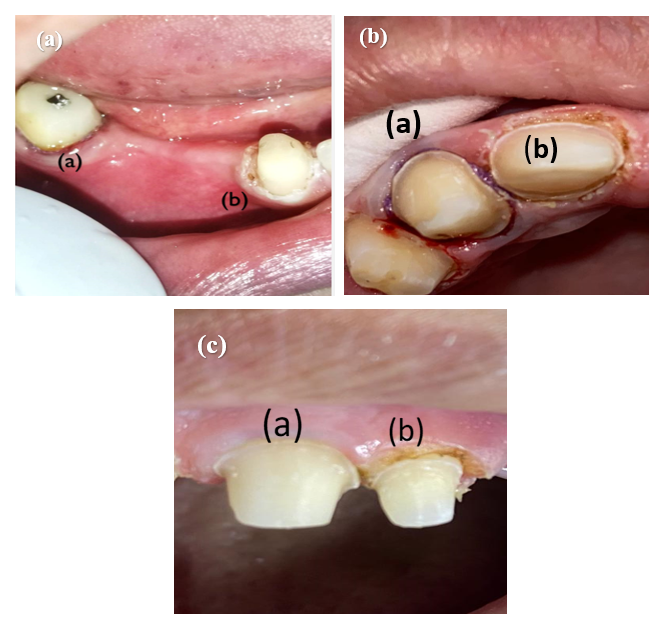Clinical Applications of a 940 nm Diode Laser for Laser Troughing Versus Conventional Method: A Preliminary Study
Main Article Content
Abstract
Background/purpose: Gingival troughing is the procedure of deflecting the marginal gingiva away from a tooth in order to provide a better visualization of the finish line. In this case report study, monitoring and assessment of the clinical outcomes of two gingival troughing techniques was conducted, also the patient satisfaction during application. Two techniques were applied: the traditional method (retraction cord) and the diode laser (940 nm) method which was compared in terms of bleeding, discomfort, and operating time.
Materials and methods: Three individuals who required two crowns on natural teeth on the same side were indicated. Before the treatment, the patient's gingival and periodontal health were healthy, and they showed no symptoms of gingival recession or inflammation. One tooth was selected randomly for conventional therapy utilizing a double retraction cord, while the other was treated with a 940nm diode laser. The teeth were prepared with a 0.5 mm sub-gingival finish line, and temporary crowns were made. Patients were followed at 48-72 hours and after 5 days. Operation time and hemorrhage scores were measured at the operation time while VAS score was measured after the complete cessation of the anesthetic effect at day zero and during the follow-ups. These measurements and patients’ feedback provided valuable data for evaluating the effectiveness of both techniques in promoting healing and reducing post-operative complications.
Results: The tooth that received the laser treatment showed approximately no bleeding at the operation time, minimal time to complete the procedure and no pain. In all cases, results showed that laser treatment saved troughing time, it also revealed that laser treatment resulted in a reduced risk of infection due to its sterilizing effect.
Received 11 Mar. 2024; Revised 7 May 2024; Accepted 2 Jun. 2024; Published online 15 Dec. 2024
Corresponding Author:[email protected]
Article Details
Issue
Section

This work is licensed under a Creative Commons Attribution 4.0 International License.




